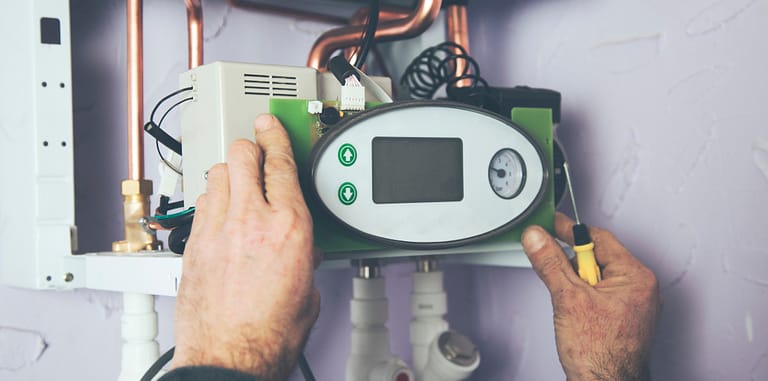- October 14, 2019
The quality of indoor air at your home has a direct impact on your health and wellbeing. Most people spend nearly 90% of their time indoors. According to Consumer Product Safety Commission, indoor air can sometimes be more polluted than the outdoor air, even in highly industrialized cities. This is why it is vitally important to identify the pollutants that may mar the inside air quality of your home and then find ways to deal with them. Your existing HVAC system can also play an important role in purifying, ventilating and regulating indoor air for better quality.
Here are some great ways of improving indoor air quality at your home at a minimum effort.
Get Houseplants
Plants are veritable gifts of nature. They automatically regulate the air, take in pollutants like carbon dioxide, and release oxygen. Think of plants as incredibly inexpensive air cleaners that deliver the best-in-class performance. Plants also contribute in other ways to alleviate the quality of indoor air at your home. You can choose from a variety of houseplants and place them around your home. Notable houseplant varieties include English ivy, rubber tree, aloe plants and bamboo palms.
Let in Some Fresh Air
Fresh air from the outdoors, especially if you have a lawn or trees outside your home, can improve inside air quality. This can be achieved simply by cracking a window or using a ventilating system. It is important to routinely ventilate your home. Indoor air is circulated and re-circulated again and again. If not properly ventilated, it can become stale and more concentrated in impurities. By ventilating the air on a routine basis, you replace the stale air with fresh air.
Identify the Pollutants
A vital step in improving inside air quality is to identify the major causes of pollutants. These typically include combustive sources such as oil, gas and kerosene. Asbestos, wall paints or the paint on furniture, air fresheners and other less common sources may also disturb the air quality. Most of these problems can be resolved through maintenance and ventilation. Combustive equipment such as stoves emit fewer pollutants if they are better maintained. Similarly, routine ventilation can decrease concentration of pollutants in the indoor air.
Make Eco-Friendly Choices
You make everyday decisions that directly impact the quality of air at your home. For instance, the type of stove you use for cooking can directly impact air quality. In general, electricity, gas and biomass stoves are environment-friendly in that they release minimum emissions. The efficiency of a stove is also important. Most stoves that produce the least amount of emissions are the most efficient. When it comes to wood heaters and stoves, you can check out this list of EPA-certified wood heaters. Compared to other heaters on the market, these models are more eco-friendly, efficient and effective in improving inside air quality.
Change Air Filter at the Recommended Time
The air filter used in your HVAC system is very effective in removing dust particles and other impurities from the indoor air. However, an air filter works at its best only when it is cleaned and replaced at the right time. You can check with your HVAC manufacturer to know when your HVAC’s air filter may need replacement. In most cases, you should replace an air filter every month. You also have a range of models to choose from when getting an air filter. To ensure better indoor air quality, go with a pleated fabric filter as it can trap more fine particles and filter air more effectively.
Turn Down the Humidity
Humidify and moisture is a major cause of polluted inside air quality. These factors can encourage the growth of bacteria, mould and other unhealthy growth. These growths then become air-borne and add toxicity to the air. The best way to combat humidity is by identifying and removing its sources. These may include a leaky ceiling, the caulk around doors and windows, and bathrooms. You can also use a quality dehumidifier to significantly reduce moisture content and help improve air quality. If you see mold growth anywhere indoors, use a quick water-and-bleach solution to remove it.
HVAC Maintenance
Your HVAC system requires routine maintenance in order to work optimally. HVAC systems that aren’t serviced or tuned every season may be responsible for unhealthy emissions. These emissions circulate through your home and adversely affect inside air quality. You can contact a quality Greenville heating and air technician for seasonal HVAC maintenance.
Hiring HVAC Contractors in Greenville SC
If you are looking to have your HVAC system maintained, overhauled or serviced, give us a call today. Here at General Air, we take pride in delivering world-class HVAC services across Greenville. Our Greenville HVAC experts can also help you make HVAC decisions that will improve inside air quality while ensuring maximum energy efficiency. Contact us today to discuss your HVAC needs with our experts.



